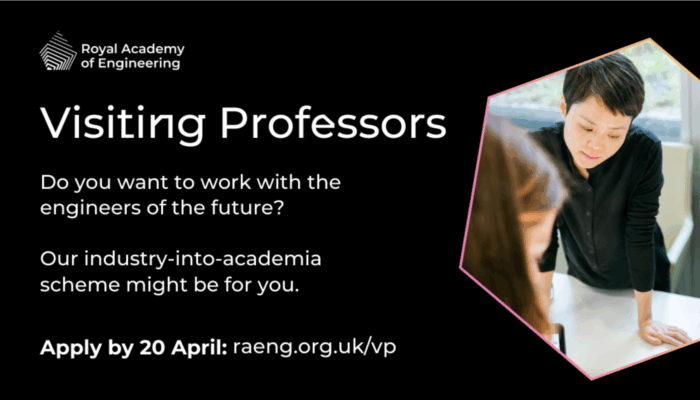This year’s Engineering Professors’ Council Annual 2018 took place on 14th-16th May at Harper Adams University.
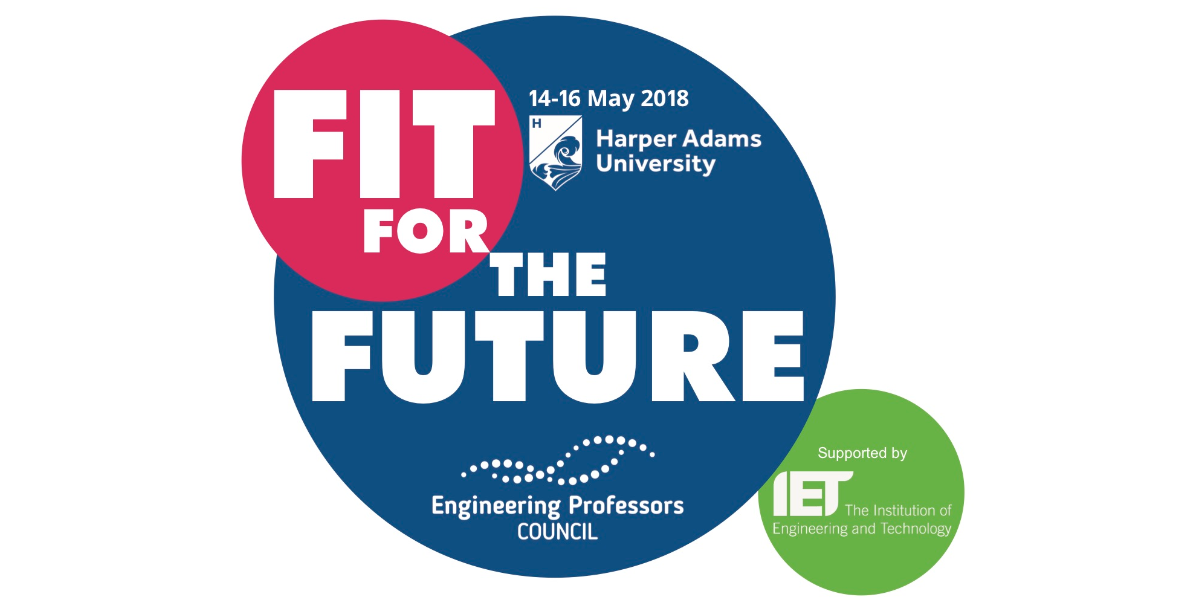
Engineering Professors Council Annual Congress 2018
The theme for this year’s Congress was Fit for the Future; we explored how we need to adapt teaching, research and our relationship with industry to meet the challenges of a fast-changing world.
The EPC would like to acknowledge the kind support of our sponsors Harper Adams University, The Institution of Engineering and Technology, and The Institution of Agricultural Engineers
All the Congress slide presentations can accessed via the ‘Event presentations’ tab.
You can also have a look on the tweets of the conference #EPCCongress18.
Click here to see upcoming EPC events including the Recruitment & Admissions Forum 2018 on 14th November.
Please see below the detailed schedule for this event.
Monday 14th May
Tuesday 15th May
Wednesday 16th May

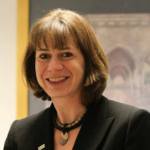
She is a Fellow of the Royal Academy of Engineering and sits on the Education and Skills Committee, as well as the Africa Engineers Steering Group, and is UK representative of the World Federation of Engineering Organisations, and incoming President of the Commonwealth Engineers’ Council.
She is also a Fellow of IOM3 where she sits on the Sustainable Development Group.

Johnny’s thought leadership, such as his papers for a graduate levy and a national access fund (2018) and on employability (2015) for the Higher Education Policy Institute, have been influential throughout the sector. Policy issues are also a significant part of his consultancy work, along with communications. His clients have included the European Commission, HEFCE, U-Multirank, as well as many universities, recruiters and charities.
He’s a regular speaker at conferences, awards and in schools. In 2013, his novel A Human Script was published.


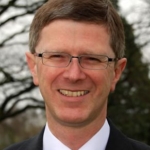
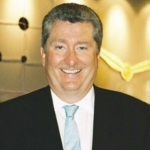

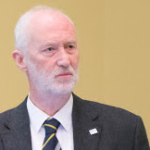

Welcome: Official Fit for the Future Congress Opening
Following an eclectic selection of hands-on activities and entertainment – including a welcome barbeque with the Harper Adams University Motorsport team and a thrilling range of off-road experiences – Congress 2018 was officially opened by EPC President, Professor Sarah Spurgeon. She urged that engineering HE should not invite others to “come and join us in our engineering box” but instead, we should “stamp down on the very edges of that box”.
Professor Spurgeon highlighted the New Approaches initiative that the EPC had launched last year in collaboration with the IET to confront the major challenges facing engineering Higher Education.
One year on from our conference on innovative approaches to the teaching of engineering in universities in the UK and globally the EPC hosted a round table meeting, chaired by Sir John Perkins, at which the EPC, IET and senior HE stakeholders met to take soundings on what we are calling ‘the six facets’ of innovative engineering higher education – the key common themes drawn from the papers presented to the New Approaches conference (the proceedings of which can be read here).
There was a lot of support for the work of the EPC so far and this work would now seek out exemplars from across the sector. There will be a further meeting of stakeholders in the autumn – this time focusing on impacting policy to promote the six facets. (Please see here for more information on New Approaches.)
Professor Spurgeon thanked the HAU convening team, the sponsors – Harper Adams University, The Institution of Engineering and Technology and The Institution of Agricultural Engineers – and the student panel before handing the floor to our host, Dr David Llewellyn, Vice Chancellor of Harper Adams University, with a call for us to “work together to make engineering truly fit for the future”.
Dr David Llewellyn, Vice Chancellor of Harper Adams University, presented our first keynote, Challenges Facing the Agricultural Industry and the Role of Engineering.
Case Studies: How do we make Engineering Education Fit for the Future?
The theme of adaptation held throughout the three key pathways to practice: engineering education, working with industry, and accreditation.
First, we enjoyed a look at three different engineering education case studies solutions. How do we make Engineering Education Fit for the Future? was presented by Katie Cresswell-Maynard, Chief Executive, Engineers without Borders UK; Greg Rowsell, Curriculum 2020 at Harper Adams; and Dawn Bonfield MBE, Founder & Director, Towards Vision.
Katie Cresswell-Maynard outlined Engineers Without Borders’ vision for an environmental future for socially responsible engineering on a global scale. The Engineering for People Design Challenge was one such case study, offering a project based, real-life learning approach to raise tomorrow’s engineers’ awareness of the role they play. Like it or not, we have an impact, and we can choose to make a positive difference with the right mindset, tools and people. “The future is a place that engineers will help create”, said Crewsell Maynard.
Gregg Rowsell, Programme Manager for engineering degree courses at Harper Adams University, presented a view from the coalface, considering how their Curriculum 2020 model enables them to rebalance a difference in understanding between academic output and employer input requirements. Rowsell promoted curriculum as a process to change the makeup bias of the programme from technical to behavioural – converting the role of the academic to facilitator of the learning process. Complemented by industry experience and a vision of block delivery, this case study is a living, breathing, demonstration of motivation, not just maths and physics.
Dawn Bonfield MBE, Founder & Director of Towards Vision, briefly described how “women in engineering” became “gender in engineering”, then plain “diversity in engineering”. This was then mainstreamed by Perkins in his skills review. Bonfield called for inclusion to become embedded, rather than an add on, and asked how we change the conversation to stop it being a threat. Inclusive engineering, she asserted, needs to become a competence, a behaviour, a thought process, a culture. And is core to everything we do.
Graduate Panel: Opinions from the consumer
A graduate panel discussion followed, featuring Eleanor Krayenbrink of Jaguar Land Rover; Sarah Malkin of Babcock DSG, Floriane Fidegnon-Edoh of University of Warwick and Ahmad Khattab of PA Consulting, lending Opinions from the Consumer.
The panel members had discovered engineering through a range of routes, but were all driven by a hands-on, experiential, approach to learning. They offered real insight into the skills they offered and challenged the academic approach to engineering traditionally held by schools and universities. They also shared the outlook that every employee has a responsibility to continue learning.
Discussion touched upon value for money in HE. Our panel were not disappointed although the one-way consumer model was challenged as higher education did, in fact, represent a partnership. In their choices, our panel valued student opinion on the ground more than survey, earnings and league table data. What would they tell their earlier self? “Never be afraid of change, don’t worry about being the odd one out, engineering is a great choice.”
Key Note: Working with Industry
The rest of the afternoon provided expert insights from our second pathway to practice: working with Industry. Our second keynote, Roger Bowden, Chairman of Niftylift Ltd, shared with us Radical Models of Working with Industry, an SME perspective.
Roger Bowden established Niftylift in a garden shed, and since it was founded in 1985, Niftylift has grown to be one of the world’s leading manufacturers of mobile elevated work platforms, with over 400 employees in the UK and USA, alongside a vast dealer network across over 40 countries worldwide to support the 75% of sales as exports.
Bowden revealed the secret of his success; an inspiring partnership with education with a focus on engagement and retention through learning. Bowden presented some real examples of successful practical innovations resulting from his radical approach, and a nice example of closing the loop.
Case study solutions: Innovations in working with industry
Next, we introduced the second case study collective Innovations in Working with Industry in which three approaches were showcased by Andrew Basu-McGowan, Policy Manager of National Centre for Universities & Business; Professor Libby John Pro Vice Chancellor and Head of College of Science & Engineering, University of Lincoln; and Jules Carter, Engineering Director at Axon Automotive.
Andrew Basu-McGowan, Policy Manager of National Centre for Universities & Business, spoke about the ambitious work of NCUB in joining the dots between engineering industry and academia.
Professor Libby John, Pro Vice Chancellor and Head of College of Science & Engineering, outlined University of Lincoln’s model of working with industry through their link with Siemens; one of only five such partnerships in the UK. Including purpose-built facilities and an industrially set up environment, their engineering scholarships confirm the engineering career choice for both parties. The impact of going beyond engineering and helping to raise the game in an academic environment was tangible – if it didn’t work for them, it simply wouldn’t continue.
Jules Carter, Engineering Director at Axon Automotive, reflected on the need for balance, between industry and university sized projects and between big businesses and SMEs. He urged us to look at what a cross section of industry wants from academia at all levels to fully benefit from what we can achieve with students and researchers in industry, predicting that training and higher apprenticeships will be far more important in years to come.
EPC AGM
The optional EPC Annual General Meeting wrapped up day one. We are delighted to announce Professor Colin Turner, University of Ulster, as our President Elect.
Professor Turner is Head of School of Engineering at Ulster University, having taken up that role in 2010, and Professor of Engineering Education since 2013. He obtained his Joint Honours degree in Pure and Applied Mathematics and his PhD in Mathematics from Queen’s University Belfast in 1993 and 1997. He joined Ulster University in 1998 to take up a post as lecturer in Mathematics, Computing and Statistics and undertaking Cardio Vascular research with the Royal Victoria Hospital and NIBEC (Nanotechnology and Integrated Bioengineering Centre).
His areas of teaching expertise are in Mathematics and Software Development for Engineering. He also has interests in the developments of technology to assist Learning and Teaching, for which he has twice been awarded Ulster’s Distinguished Learning Support Fellowship. He has a particular interest in technologies that impact upon Employability both within the University environment and outside. He has developed and released several of these systems with Free Software licenses and they have been used by Higher Education Providers in the UK and Beyond.
He has had a key involvement in Ulster’s strategic response and implementation of the Key Information Set (KIS) and the Higher Education Achievement Report (HEAR). He has been an architect producing electronic systems to manage curricula and the processes of their development to ensure all appropriate information is captured.
Professor Turner is a Fellow of the Institution of Mathematics and its Applications (FIMA), a Fellow of the Institution of Engineering and Technology (FIET), a Principal Fellow of the Higher Education Academy (PFHEA), and has served as a board member for the EPC since April 2013.
He is a member of the advisory group of Learned Societies and Professional Bodies for the All Party Group for Science and Technology at the Northern Ireland Assembly and an Executive Committee member and Trustee for ASET, the UK body for placement professionals.
Pre-dinner Talk
In our evening public lecture, Faster, further and the skills we need, Richard Noble OBE, Director Bloodhound Project and Land Speed Record Holder gave a riveting account of the successes and failures that have led him to be attempting the thousand mph land speed record.
Richard Noble shared with us the moment his land speed record-breaking Thrust SSC broke the sound barrier. The awesome sonic boom could be heard 40 miles away and it was shaking buildings! He truly inspired us to just keep on going, and to be disruptive and a bit unreasonable! He left us with this thought: “Inspiration leads to aspiration leads to serious education study.”
Congress dinner
The Congress Dinner opened with awards, and closed with the very funny Anna Ploszajski, stand-up comic and materials engineer.
President’s Award
Professor Dame Ann Dowling OM DBE FREng FRS, President of the Royal Academy of Engineering, attended Congress to receive the EPC President’s Prize for her societal impact as engineer and educator, and her involvement in the Global Grand Challenges.
The President’s Prize is awarded biennially for services to engineering education. Dame Ann is a distinguished mechanical engineer and a leading advocate for the societal importance of engineering. Her work is characterised by collaboration and she has been hugely influential in developing the UK’s involvement in Global Grand Challenges. She continues to make a considerable societal impact as an engineer and educator.
Dame Ann said: “I have worked on a wide range of projects, from quieter hand dryers to low-emission power plants, and stabilising combustion in energy-intensive combustors. I never imagined when I started out that I would be standing here today accepting this prize; I have just tried to be a good engineer and to work on projects that interest me.”
She has kindly agreed to become a patron of the EPC.
We are also delighted to announce that the Incorporation of Hammermen of Glasgow Student Award was presented to Jonathon Glen of Harper Adams University.
KEYNOTE: Pathways to practice (accreditation)
Our final Fit for the Future keynote Pathways to practice (accreditation) opened Congress 2018’s final day, as Alasdair Coates, Chief Executive of the Engineering Council was joined by Professor Kel Fidler, Adviser at NMiTE; former Vice Chancellor, Northumbria University, and Chairman, The Engineering Council.
Alasdair Coates outlined the work of the Engineering Council and highlighted the diverse pathways to registration for individuals, and the value to engineering of accreditation. Some accreditation myth-busting, together with some future gazing, led into discussion on the current AHEP standards review.
Kel Fidler, also wowed us with his illustrious background and sector influence. He gave a critique of the history of AHEP and the themes and frustrations that have ran throughout, concluding that: “After ~40 years of accreditation activity, to produce the graduates that employers seek, we are not doing what AHEP requires and we don’t care.” It’s time to make a real change. See Kel Fidler’s
The EPC very much hopes that the current AHEP review ensures we can all work in a supportive environment to render engineering educational provision fit for the future. Following Alasdair Coates’ invitation to engage, we have undertaken a representative consultation and submitted to the review a response which wholly supports and endorse the current UKSPEC and strongly and collectively asserts that the current problems with accreditation may be wholly attributed to inconsistent implementation of UKSPEC across the Professional Engineering Institutions (PEIs). Inconsistency across different panels from the same PEI were also flagged as a serious concern. Our consultation heard many examples of panels focussing upon issues that are nothing at all to do with UKSPEC.
Emerging changes: Knowledge Exchange Framework
Hamish McAlpine, Senior Policy Adviser Knowledge Exchange, Research England, led us through Emerging changes: Knowledge Exchange Framework. He discussed the purpose of the TEF and asked “is this a fair comparison?”. He also shared current thinking about what metrics are suitable for KEF.
We were reminded that the TEF serves a dual purpose: to aid universities’ understanding and as and tool for businesses and other users. And business users don’t care about metrics! However, Research England are reasonably well down the line in terms of metrics, subject to consultation later this year, and a pilot in the autumn. The voice of the customer was not in scope of version one, but an NSSesque model for university business interactions is being seriously explored for later versions. Hamish McAlpine confirmed that it had not yet been decided if KEF would replace the HEIF allocation model.
Agricultural Engineering – The Future
Finally, Kit Franklin inspired us all about the Agricultural Engineering – The Future. “With limited resources, farming must become more efficient”, he told us. He introduced us to precision farming – a UK leading new industry sector worth $240 billion – and Harper Adam’s Hands-Free Hectare.
Responding to a plateau in farming yield since 2000 and motivated by working with the right inputs to generate less waste, in April 2017 Harper Adams harvested the produced the world’s first Hands-Free Hectare. The project has generated huge publicity and impact, despite no research paper! Harper Adams will also be welcoming 5G in the next few months to support their work in this area.
Close of official congress
Our President-elect closed the proceedings before delegates were invited to see the world’s first Hands-Free Hectare for themselves.
